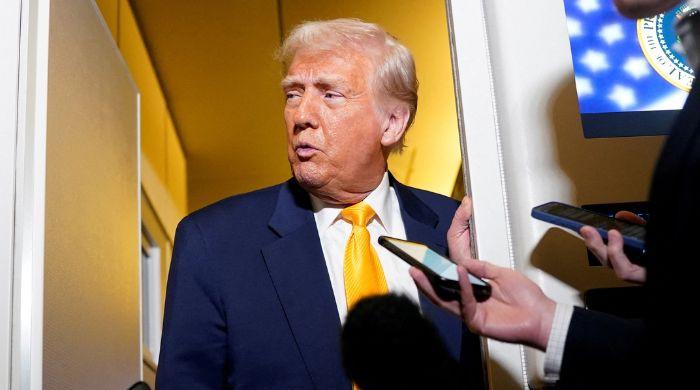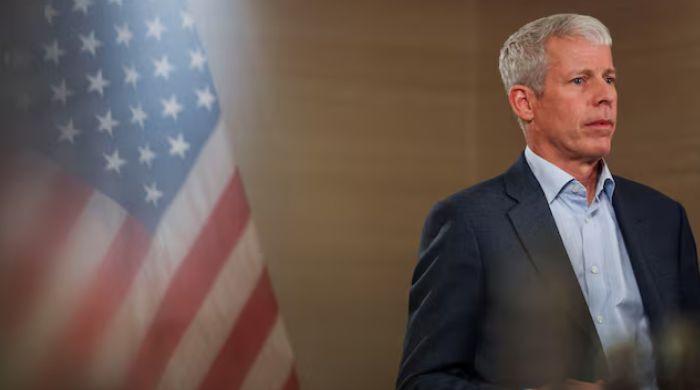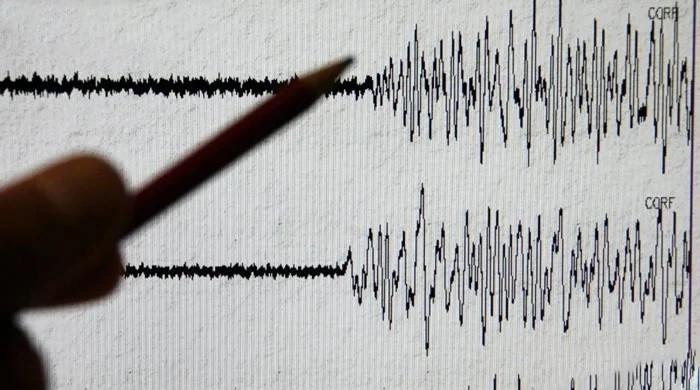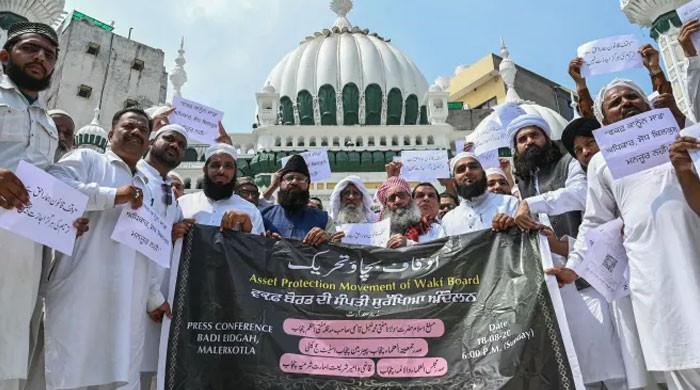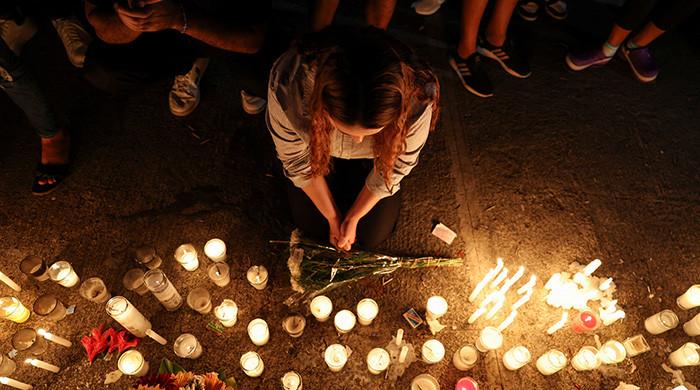Saudi Arabia says won't establish ties with Israel until peace achieved with Palestinians
Saudi Arabia's foreign minister says "all things are possible" once peace is achieved with the Palestinians
August 19, 2020
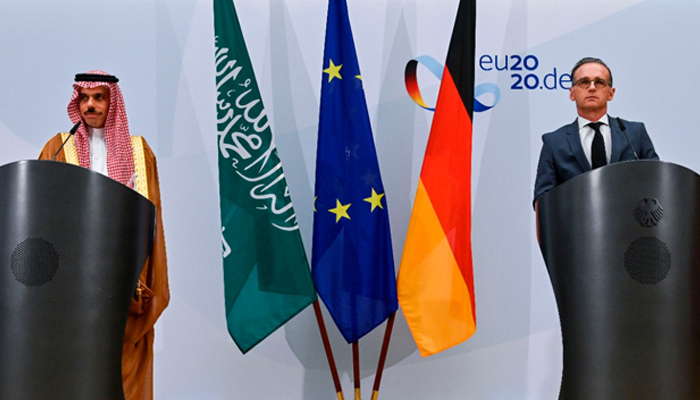
BERLIN: Saudi Arabia would not establish diplomatic ties with Israel until internationally recognised peace was achieved with the Palestinians, the Kingdom's foreign minister said Wednesday, days after the United Arab Emirates (UAE) normalised relations with the Jewish state.
Saudi Foreign Minister Prince Faisal bin Farhan told reporters on a visit to Berlin that "peace must be achieved with the Palestinians" on the basis of international agreements as a condition for any normalisation of relations with Israel.
"Once that is achieved all things are possible," he said.
Saudi Arabia, the Arab world's biggest economy, has until now maintained a conspicuous silence over the deal but local officials hinted that Riyadh was unlikely to immediately follow in the footsteps of its principle regional ally despite US pressure.
Annexation plan not off the table
At a news conference with his German counterpart Heiko Maas, Prince Faisal had reiterated criticism of Israel's "unilateral policies" of annexation and building settlements in the West Bank as "illegitimate" and "detrimental" to a two-state solution.
As part of the landmark deal, Israel agreed to suspend the annexation of occupied West Bank territories, although Prime Minister Benjamin Netanyahu said the plan was not off the table in the long run.
Palestinians protested the deal as a betrayal by a major player in the Arab world, which has broadly held that normal ties with Israel are only possible once the dispute with the Palestinians is resolved.
Also read: Pakistan will never recognise Israel until Palestinians are given 'right of just settlement'
Prince Faisal noted that Saudi Arabia had sponsored 2002 Arab peace initiatives holding out the prospect of a normalisation of ties with Israel but said Riyadh now saw no road to diplomatic relations without a Palestinian peace deal.
The Kingdom's remarks came in line with those from Pakistan after Prime Minister Imran Khan a day earlier categorically denied the country would recognise Israel, stating that Islamabad would not do so until Palestinians were given their right to a "just settlement" based on the Two-Nation Theory.
'Pakistan cannot recognise Israel'
In a wide-ranging interview a day prior, PM Imran said Pakistan's "stance is very clear".
"Our stance was cleared by Quaid-e-Azam Muhammad Ali Jinnah in 1947-48," he said, "which was that we will never recognise Israel till the Palestinians do not get their rights."
The premier said that if Pakistan agreed to recognising Israel and gave up its principled stance then it would have to stop raising the issue of Kashmir as the situation in the disputed area was the same.
"Hence, Pakistan cannot recognise Israel," he stated.
The reaction around the world to the Israel-UAE deal has been varied, with Iran denouncing it as "strategic stupidity" and Turkey threatening to "suspend diplomatic relations" with the Gulf state.
'Strategic stupidity', threats to sever ties
Iran's foreign ministry had said in a statement the move was an act of "strategic stupidity from Abu Dhabi and Tel Aviv, which will undoubtedly strengthen the resistance axis in the region".
"The oppressed people of Palestine and all the free nations of the world will never forgive the normalising of relations with the criminal Israeli occupation regime and the complicity in its crimes," it had added.
Turkey's President Recep Tayyip Erdogan had said Ankara could cut off its diplomatic relations, noting that he "gave an order to the foreign minister".
"I said we could suspend diplomatic relations with the Abu Dhabi administration or withdraw our ambassador," Erdogan had told reporters at the time.
Major breakthrough
In a major breakthrough in relations between the two Middle Eastern nations, Israel and the United Arab Emirates had on Thursday reached a peace agreement brokered by US President Donald Trump.
The deal would lead to a full normalisation of diplomatic relations between the two nations, a move that reshapes the order of Middle East politics from the Palestinian issue to Iran.
Read more: Trump announces 'historic peace agreement' between Israel, UAE
Under the accord, Israel agreed to suspend annexing areas of the occupied West Bank as it had been planning to do, White House officials said. It also firmed up opposition to regional power Iran, which the UAE, Israel, and the US view as the main threat in the conflict-riven region.
Israel had signed peace agreements with Egypt in 1979 and Jordan in 1994. But the UAE, along with most other Arab nations, did not recognise Israel and had no formal diplomatic or economic relations with it until now.






